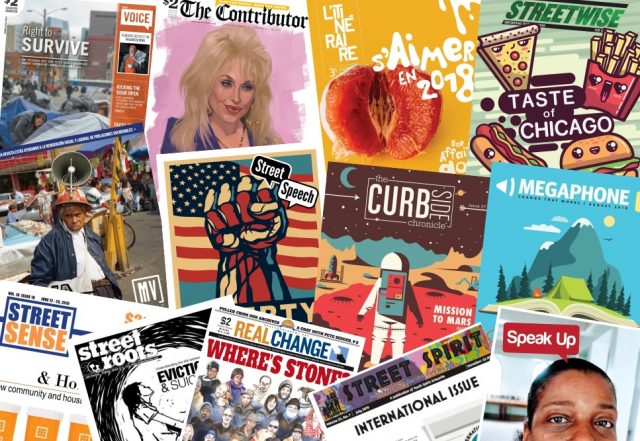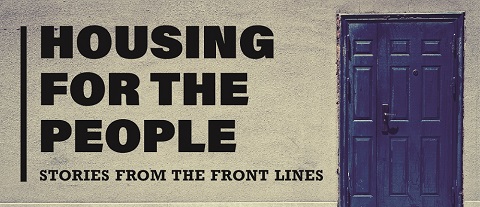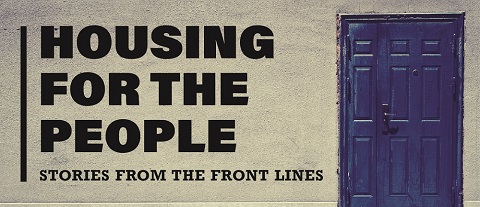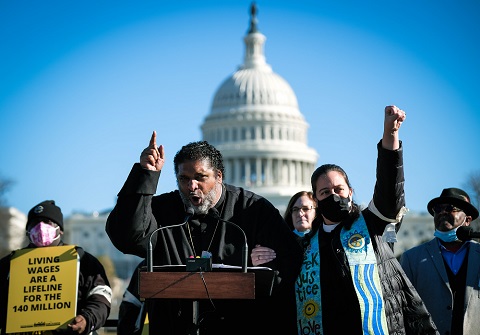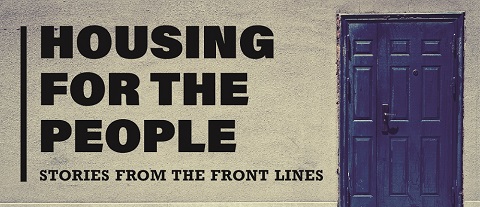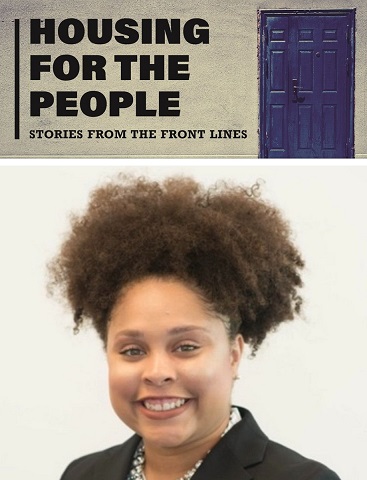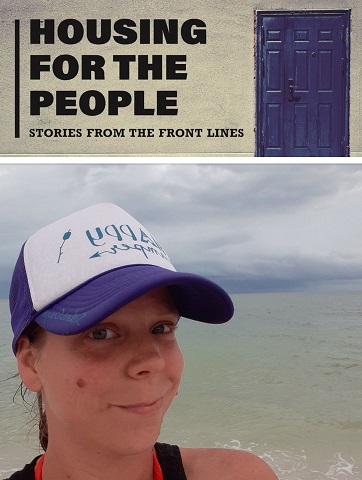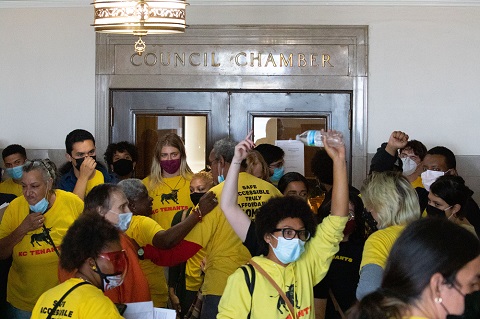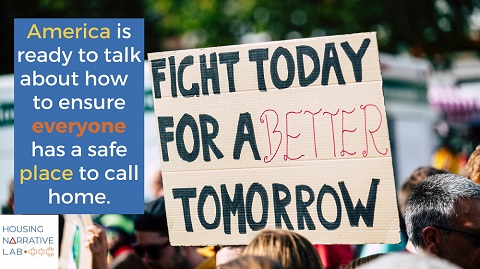By
The very first issue of the Denver Voice was put together with a single typewriter and a donated social security check. 20 years later, the Voice has employed more than 4,000 people experiencing homelessness and poverty, helping them move off the street and into other jobs.
Now a veteran of the street paper network, the Voice has withstood staff changes and financial troubles. This month they celebrate their 20th birthday with a special edition of the paper, looking back on their successes.

“There have been several versions of the Voice. Each had its own passionate group of people working hard behind the scenes to make sure the paper went to press,” says current editor Sarah Harvey. “Each eventually ran out of money, but managed to pass the torch on to another group instead of letting it die completely.
“During the past two decades our editorial operations have been run from a booth in the back of a dive bar, a corner of a municipal building, a room in a church, and even a few official office spaces.”
In 1996, when the paper began, Shirley Whiteside’s work at the Denver Catholic Worker Soup Kitchen led her to cross paths with two regulars from the St. Francis Centre, a refuge for men and women homeless in the metro Denver area. Jo-Jo DeHerrera and Floyd ‘Tumbleweed’ Hamilton shared Shirley’s frustration with the low profile of issues affecting the homeless among the general public. With a shared love of Seattle street paper Real Change, the enterprising trio got together to print the first edition.
The paper’s first incarnation lasted until 2006, when it was forced to cease publication due to a lack of funding. Until then the Voice had been distributed for free to vendors, and then sold on the street by members of Denver’s homeless community, including their very first vendor Bruce Wright. When financial troubles overtook the team, it was one of Bruce’s regular customers, local businessman Rick Barnes, who resurrected the paper a year later in 2007.
“Support from INSP has been crucial in getting us through the leaner years”
The changes Rick made have endured: he implemented an official vendor programme, based on the INSP (International Network of Street Papers) model, and hired professional journalists to help with organisational and editorial tasks. They reported on local news and helped give a voice to the homeless community in Denver and beyond.
Sarah Harvey believes this approach gives the paper credibility, as does connecting with the wider street paper movement through INSP. Among the advantages is the access to shared street paper content through the unique INSP News Service. “Support from INSP and content from the INSP News Service has been crucial in getting us through the leaner years,” she explains.
For some vendors, the paper has been life-changing. Raelene Johnson is one such person. “I walked into the Denver Voice office, and they didn’t care about my past, they didn’t care about anything but my desire to work,” she says. Since getting her vendor’s badge Raelene has stopped using drugs, and now owns her own home.
She takes obvious pride in her work: “This is so much more dignified than holding up a sign.”

When John Alexander first became a vendor eight years ago, he had no plans to stay with the paper. “[My main intention was] getting my free papers, getting some money, and buying some dope,” he says, “but I ended up with this sense of pride, running my own business. I’ve taken advantage of every opportunity, like writing for the paper.”
His involvement has changed the way others see him, too. “I’m a known community figure now, because of the Denver Voice. I’m even known as the honorary mayor of the Stapleton neighbourhood – I haven’t been booted out of office yet!”
As the team plan celebrations for the big two-zero, what does the future hold for the Denver Voice? John Alexander is optimistic. “I think the 20th anniversary shows that the Voice is doing something right.”
Back when the Denver Voice relaunched in 2007, Kali Lynn, the paper’s first editor, said: “The truth is that each incarnation of the Voice has been fuelled by the energy, charisma, personality, and excitement that a handful of people brought to the paper.”
Considering all the challenges the Voice has faced, Sarah Harvey agrees. “The Voice will continue to adapt to meet the needs of the people we serve,” she says.
“I think our greatest achievement is that we’re still here.”




